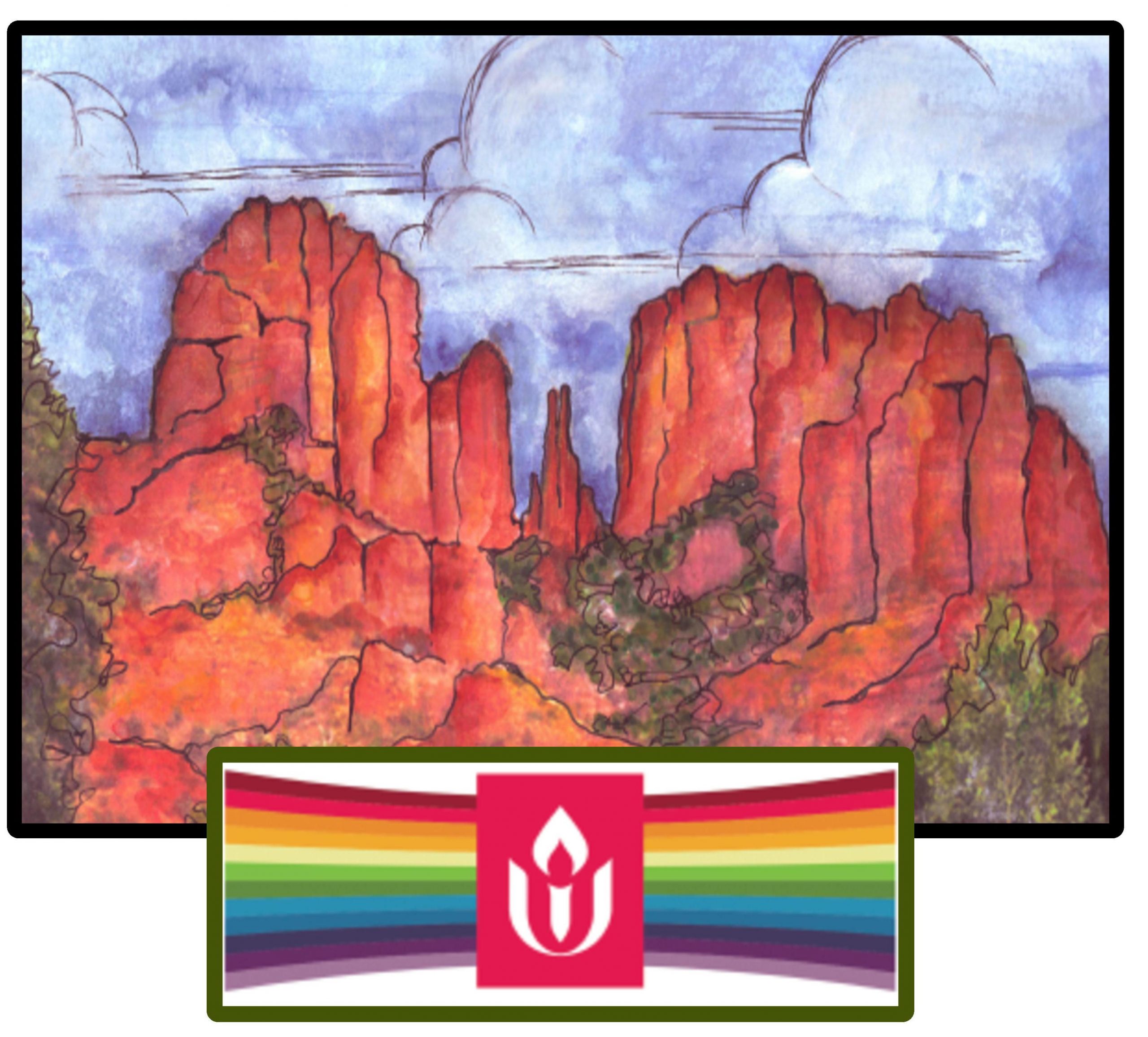Individual members of the Sedona Unitarian Universalist Fellowship believe in their own deeply held “credo.” They aren’t expected to adopt a common “creed.”
A credo is a personal philosophy that completes sentence stems like: “I believe…” or “I value…”
In contrast, a creed is an official doctrine, created long ago by professional theologians, that is taught to and is binding upon all members of a religious organization.
A credo is created by amateur, contemporary theologians—in other words, each one of us–out of the raw stuff of our own lived and reflected upon experience.
Creeds are fixed, cast in ecclesiastical concrete. Credos are organic and grow as we grow.
Too often orthodox creeds say “no” to new truths. They have frozen their theology at a once-upon-a-time point and place. A credo acknowledges that flesh and blood people live and learn in different times and spaces. A credo combines the stability of core personal convictions with the flexibility to modify them in the light of new experiences and knowledge.
A core conviction among Unitarians, the first of the faith’s seven essential principles, is to affirm and promote “The inherent worth and dignity of every person.” They practice that principle by creating among themselves a climate in which individuals are not only free to, but are encouraged to, even expected to, create their own credos, their own values and beliefs. Unitarian Universalism is a “religion that puts its faith in you.”
January 13, 2023
